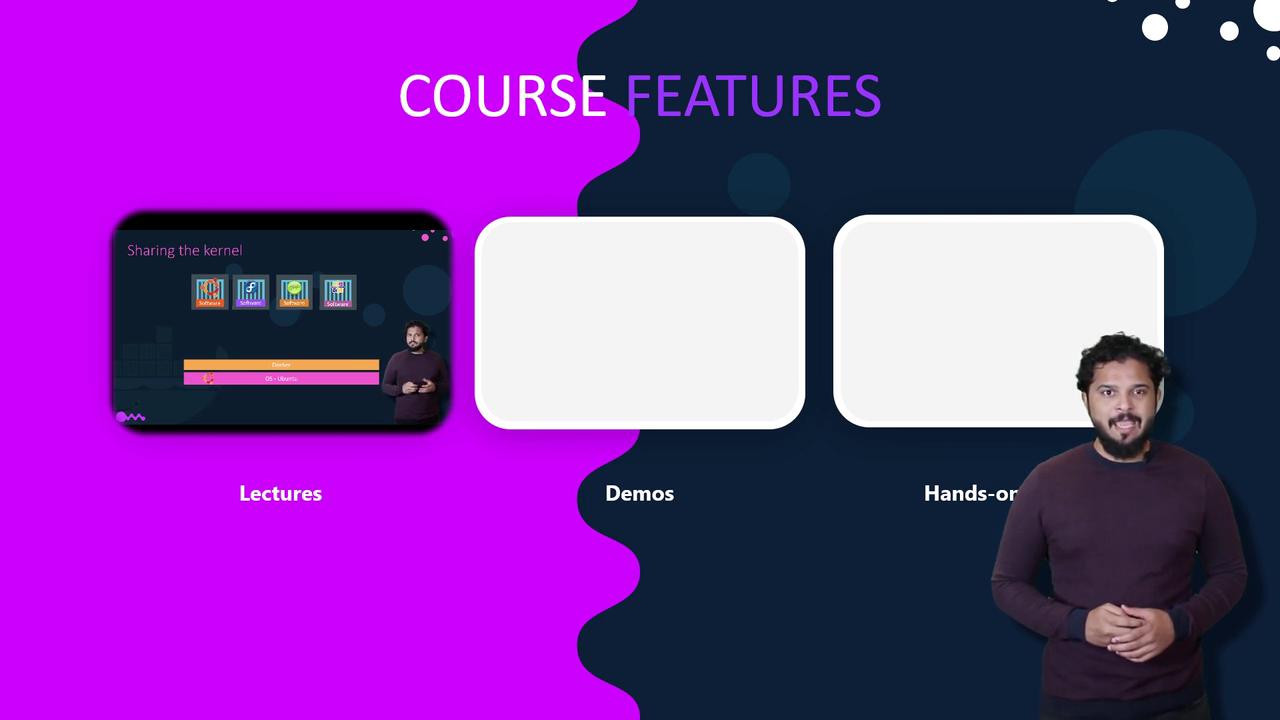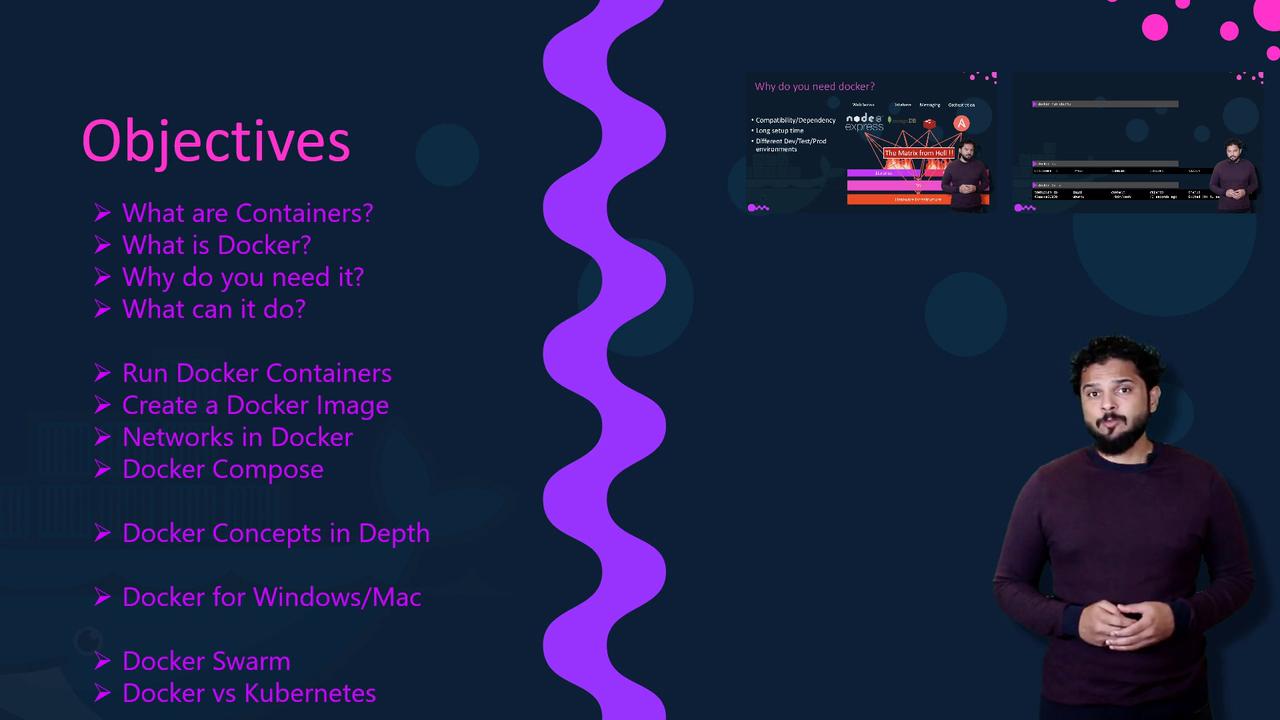Docker Training Course for the Absolute Beginner
Introduction
Introduction
Hello and welcome to the Docker for Beginners tutorial. I'm Mumshad Mannambeth, your instructor and a seasoned DevOps and cloud trainer at KodeKloud. With over 13 years of industry experience and a passion for hands-on learning, I've helped thousands of students master technology in a fun and interactive manner.
In this guide, you'll explore Docker through engaging lectures enriched with animations, illustrations, and analogies that simplify complex concepts. We also include practical demos to help you install and get started with Docker.

We also provide interactive hands-on labs that you can access directly from your browser. These labs offer you a terminal connected to a Docker host along with a quiz portal. Through these interactive quizzes, you can test your ability to navigate the environment, gather information, and execute Docker commands.
Before diving into the labs, let’s review the key objectives of this tutorial. By the end of this course, you will learn how to:
- Run Docker containers
- Build custom Docker images
- Configure Docker networking and use Docker Compose
- Leverage Docker Registry and deploy a private registry
Additionally, we will delve into Docker’s internals and explore Docker for Windows and Mac. We'll also introduce container orchestration tools such as Docker Swarm and Kubernetes.

Hands-On Labs
While you can set up your own labs, this course offers real labs that are accessible from your browser—anytime and anywhere. Each lab includes a terminal connected to a Docker host and an integrated quiz portal that validates your efforts in real time.
Each lecture within this course is paired with interactive quizzes, making the process of learning Docker both engaging and effective.
I hope you're as excited as I am to dive into the world of Docker. Let's explore its powerful capabilities and transform the way you work with containers!
Watch Video
Watch video content